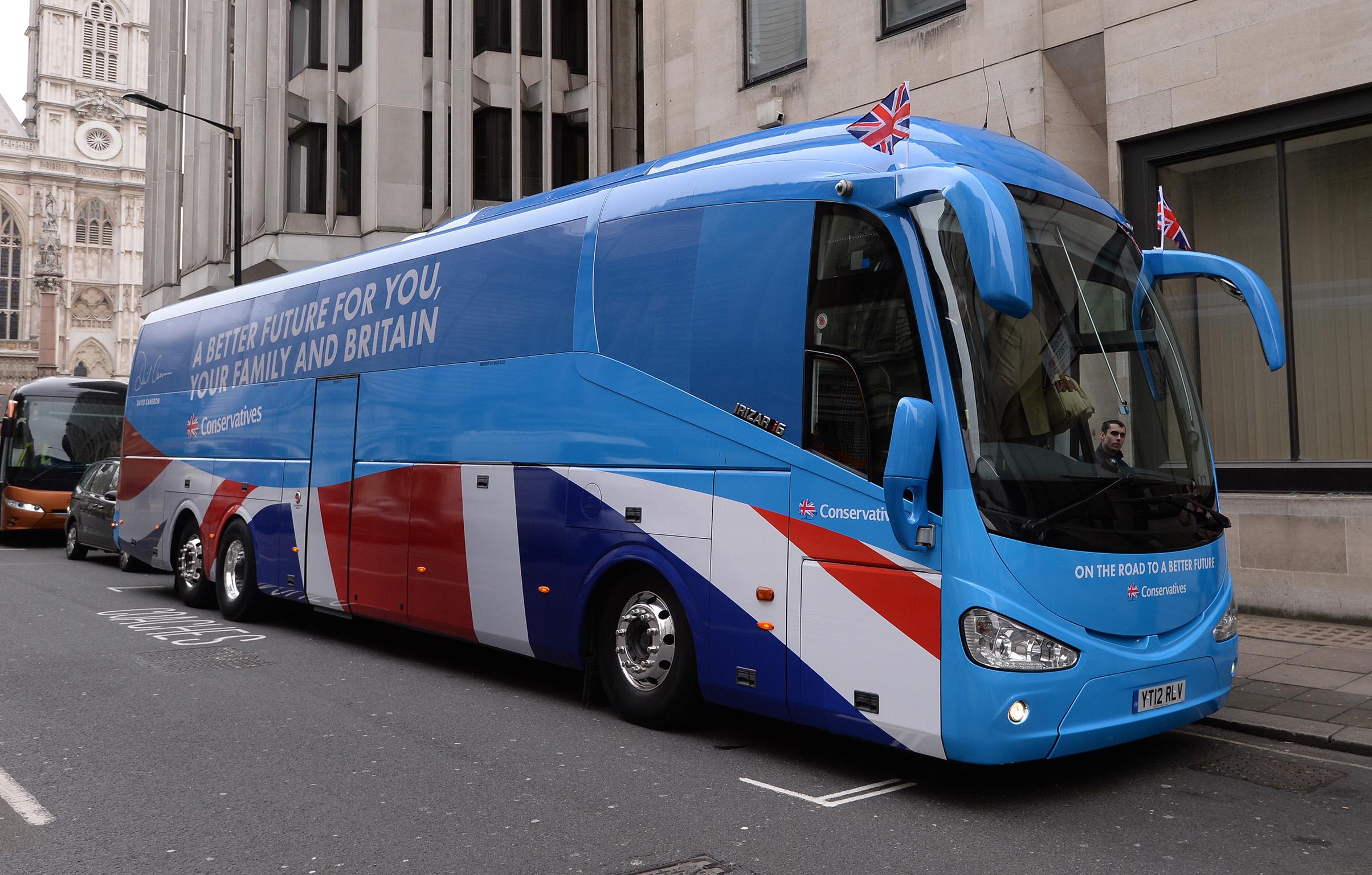The Independent's journalism is supported by our readers. When you purchase through links on our site, we may earn commission.
The Conservative election expenses scandal would never have come to light if it had been left to the authorities
Laws were broken by the Tories in the 2015 general election and three previous by-elections, but the authorities have taken action only because of one journalist’s determination to track down the bills for hotels and battle buses


One of the crowning glories of the uncodified British constitution is called “Michael Crick”. The holder of this post is essential to the functioning of democracy. His relentless reporting of Conservative election expenses bore fruit today when the Electoral Commission fined the Tory party £70,000 and asked the Metropolitan Police to investigate whether a crime had been committed.
Crick, who has been one of my heroes since he exposed the Militant tendency’s covert entryism in the Labour Party in 1984, has provided a textbook example of how free media is needed to make democracy work.
We have laws in Britain to limit election spending, to try to constrain the power of money in our politics. Those laws were broken by the Tories in the 2015 general election and three previous by-elections, but the authorities have taken action only because of Crick’s determination to track down the bills for hotels and battle buses in his reporting for Channel 4 News. His investigation started in Thanet South, where the Tories made a huge effort to see off the challenge from Nigel Farage, the former Ukip leader.
It seemed that the Tory party was trying to get round the tight limits on local constituency spending by allocating some of those costs to the national campaign. The Electoral Commission report doesn’t focus much on the question of whether spending should be declared as local or national, because it found so many payments that were not reported at all.
But Sir John Holmes, the chair of the Commission, is not happy with its powers. He said: “There is a risk that some political parties might come to view the payment of these fines as a cost of doing business.” A mere £70,000 spread over several marginal seats could be seen as a price worth paying. The party could even add a surcharge to the amount it charges journalists to be allowed to travel on its battle buses.
Sir John said the Commission “needs to be able to impose sanctions that are proportionate to the levels of spending now routinely handled by parties”. He should get those powers. The pressure for them should now be irresistible, and there are more investigations, including criminal ones, to come.
We should be clear, as I have written before, that the Conservatives are not the only transgressors. There are good reasons to think Labour and the Lib Dems overspent in some constituencies in 2015 too, and the Scottish National Party’s helicopter, which visited many constituencies during the UK and Scottish elections, was charged as a national expense.
But “they’re all at it” is no defence and no guarantee of a level playing field. For that we need clear rules, rigorous enforcement and – above all else – journalists with the devotion to democracy of Michael Crick.
The British constitution is flexible and constantly evolving, and other people have carried out duties similar to Crick’s in the past. Vincent Hanna of the BBC and Channel 4 brought a similar sense of mischief and fun to politics, and especially to by-elections. He enjoyed the game and theatre of politics, but there was a seriousness of purpose to his journalism, trying to make sure that the voters knew about their candidates so that democracy could work. Anthony Bevins, late political editor of The Independent, was also an honorary Crick, among other things leading a successful campaign to open up the secrecy of parliamentary Lobby journalism in the 1980s.
Let us hope that Crick has inspired a new generation of journalists to keep our politicians honest in future.
Join our commenting forum
Join thought-provoking conversations, follow other Independent readers and see their replies
Comments